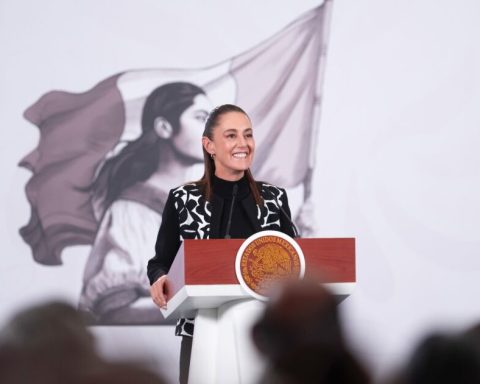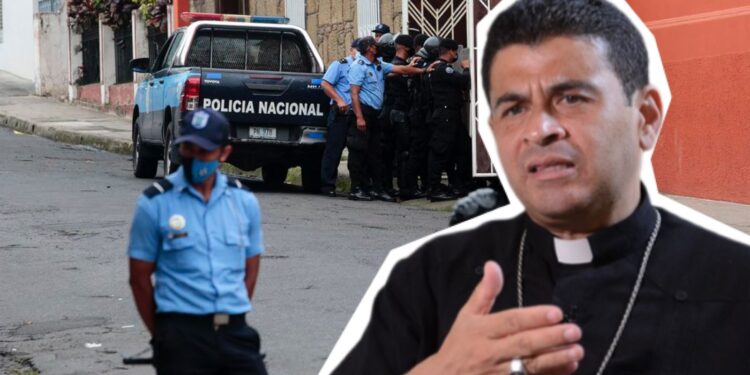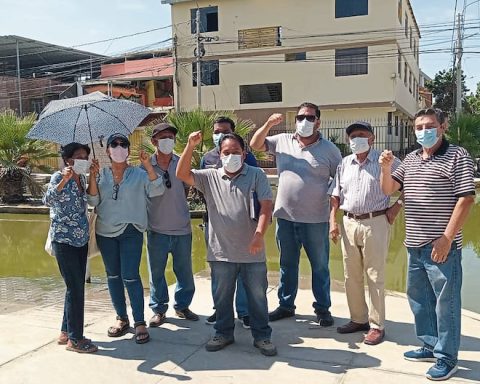AND
n contraposition to the educational principles that should be promoted since the Fourth Transformation, the past IPN admission exam is a window to violations of the Magna Carta and international treaties that should put the entire national education system on alert. There are irregularities that are worth listing to prevent further deterioration in higher education in relation to article 3 of the Constitution. Worryingly, in addition, the principles that govern the Convention on the Rights of the Child and the General Law of Children and Adolescents (LGNNA) were ignored. Fundamental precepts for minors enshrined in article 13 of the LGNNA, which guarantees the right not to be discriminated against, to education, to legal certainty and to due process, were violated.
In the first place, the way in which the online admission test was applied directly hit low-income applicants in the city, but especially those from rural areas of the country. According to the latest National Survey on Availability and Use of Information Technologies in Households, by Inegi, only 66.4 percent of the 35 million households have Internet access. The Federal Telecommunications Institute recognizes that only 56.5 percent are Internet users in rural areas. The states with the lowest percentage of Internet users are Chiapas, Oaxaca and Guerrero. This is completely discriminatory and does not put in equal conditions those who seek to enter. They were asked to have something that not even the State itself guarantees for the entire population, violating equity and the principle of inclusion that must be applied according to article 3 of the Constitution.
If this were not enough, each applicant was required to have a computer in a closed environment and to have technical specifications: microphone, camera, constant Internet speed and space on the computer for special software. If a low-income applicant wanted to go to a cybercafé to take the exam, it is most likely that the noise of the environment will disqualify him by default because of how the software was designed, which did not take into account the different scenarios that could arise in students coming from of poor families. This of course does not guarantee the human dignity of adolescence as established in article 57 of the LGNNA on the right to education.
Worse: in a very delicate and authoritarian way, the IPN officially released an institutional statement stating that the exam was canceled for 799 applicants. for activities not allowed
, accused them with euphemisms of cheating during the exam, and that he also had the evidence. Without a clear mechanism involved, they were tried and sanctioned without the possibility of defending and being defeated in a fair trial. These assertions are very serious, since they harm the emotional integrity of the applicants who were held strictly accountable; the authority did not stop to think that perhaps the software they used requested specifications that low-income applicants did not have. Neither the General Advisory Council (CGC) nor the Ethics Commission of the IPN have ruled on such harsh accusations. There was no due process for such academic and administrative determination.
Secondly, it should be said that the IPN has adopted a scheme of total opacity and discretion in the management of public resources. To match the elimination of its trust, which was a success of the SEP due to the opaque handling that lent itself to corruption, the IPN authorities generated a triangulation scheme that allowed it to operate a mechanism far from all transparency. The legal figure of a civil association (AC), the Polytechnic Foundation, has been abused to manage public resources that should enter by law the auxiliary decentralized body created for this purpose, the Commission for the Operation and Promotion of Academic Activities.
The current administration decided to maintain the relationship with the foundation despite multiple complaints and a lawsuit against it by the IPN itself. This happens because, being an CA, it can award contracts without bidding, as happened with the company in charge of applying the admission exam software. Surprisingly, the exam software was not the work of researchers from the National Computing Center or the Higher School of Computing, much less by the Computing Research Center. It was decided to privatize the exam, despite the fact that the capacities exist within it. In addition, applicants were required to deposit the money for the admission exam, not to the IPN, but to the foundation. The most alarming thing is that neither the Internal Control Body nor the CGC can demand transparent resources, because it is not governed by the General Law of Administrative Responsibilities. For this reason they are not obliged to respond to him or to the general management, as has happened in the past.
Last but not least, during the toughest stage of the pandemic, without a vaccine in between, both teachers and support and education assistance personnel collaborated in carrying out the face-to-face exam for the care of the applicants. Year after year, the polytechnic community waits for this moment to receive an extra income, especially if you think about all the job insecurity to which it has been subjected, this income is expected by many families. An economic resource that served as a de facto right was cut off from the workers in order to hand it over to a transnational.
The violation of rights is serious, but it is even more so in minors. What has been described above is a severe setback, it is part of the neoliberal project of the old structures of the IPN that remain embedded in the governing bodies. This does not represent the founding principles of Cardenas, much less those of the Fourth Transformation. Both the CNDH, the Ministry of Public Function and the Superior Audit Office of the Federation must put order and above all prioritize the best interests of the minors involved. The democratization of the IPN starts from this principle, the educational authorities should know that they cannot play the apprentices with this. It is urgent to rectify.
*Teacher at ESCA Tepepan














